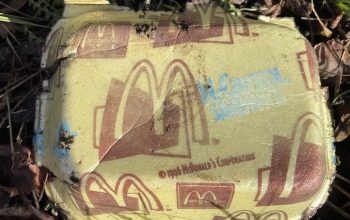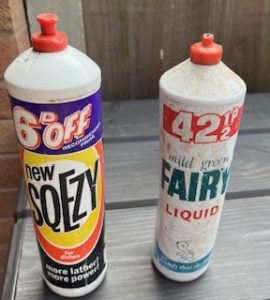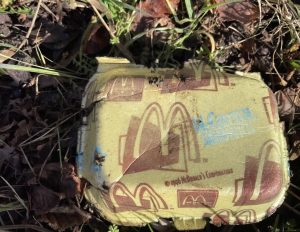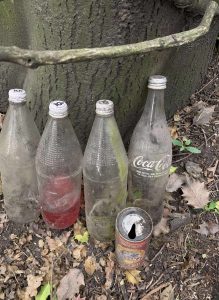Litter Lives On
September 15, 2025

This September, councils across Leicestershire are shining a spotlight on the lasting environmental impact of litter with the launch of its latest initiative: the “Litter Lives On”
The campaign is part of the Leicestershire Resources and Waste Strategy 2022 – 2050 where the Leicestershire councils have pledged to work together to reduce litter and fly-tipping across the county.
Designed to raise awareness around the enduring presence of waste in our countryside, the campaign highlights how common litter items from crisp packets to plastic bottles can linger in the environment for hundreds of years, causing long-term damage to ecosystems and wildlife.
As a community, we must recognise that what we casually throw away today may still be damaging our environment decades from now.
This campaign urges everyone to think twice about how we dispose of waste and to appreciate just how long ‘rubbish’ can last.
Litter isn’t just an eyesore it’s a threat to wildlife, waterways, and the health of our planet.
Join us in making litter a thing of the past. Because every piece picked up is a step toward a cleaner, kinder world.
Here’s some interesting facts…
Plastic bottles can take up to 450 years to decompose.

Here’s why it takes so long:
- Chemical structure: PET is highly resistant to natural degradation because its molecular bonds are tough for microbes to break down.
- Environmental conditions: In landfills, lack of sunlight and oxygen slows decomposition even further.
- In oceans: Plastic bottles don’t biodegrade but instead break into microplastics, which persist indefinitely and harm marine life.
Polystyrene, often seen in foam cups, packaging, and insulation is not biodegradable and can take hundreds to thousands of years to decompose naturally.

Here’s why:
- Chemical stability: Its strong polymer bonds resist breakdown by microbes, moisture, and most chemicals.
- Photodegradation: Sunlight can slowly break it down into powdery fragments, but this process is painfully slow and only affects surface layers.
- Microplastics: Instead of decomposing, polystyrene often fragments into microplastics, which infiltrate ecosystems and pose serious risks to wildlife.
Glass is one of the most durable materials in existence. It doesn’t biodegrade like organic matter, and under natural conditions, it can take thousands to even millions of years to decompose. In fact, archaeologists have found glass artifacts from ancient Mesopotamia and Egypt that are still chemically intact after over 3,000 years.

Why glass lasts so long:
- Chemical stability: Made primarily from silica (sand), glass has a highly stable molecular structure.
- Resistant to environmental stress: It doesn’t react easily with moisture, oxygen, or microbes.
- Slow surface changes: Over centuries, glass may undergo devitrification—where its surface becomes cloudy or iridescent—but this is cosmetic, not true decomposition.
Littering is a criminal offence under the Environmental Protection Act 1990.
Local authorities can issue Fixed Penalty Notices up to £500 to anyone caught littering. Litterers can also face a fine in court of up to £2,500.
Select your council to report littering:
- Blaby DC Report a Littering Offence – Blaby District Council
- Charnwood BC Community volunteer litter picking – Charnwood Borough Council
- Harborough DC Litter and graffiti | Litter and graffiti | Harborough District Council
- H&B BC How to report this to us | Litter dropped from a vehicle | Hinckley & Bosworth Borough Council (hinckley-bosworth.gov.uk)
- Leicester City Love Clean Streets (leicester.gov.uk)
- Melton BC Report a Problem – Melton Borough Council
- NWLDC Littering – North West Leicestershire District Council (nwleics.gov.uk)
- Oadby & Wigston BC Environmental Crime – Oadby and Wigston Borough Council (oadby-wigston.gov.uk)










